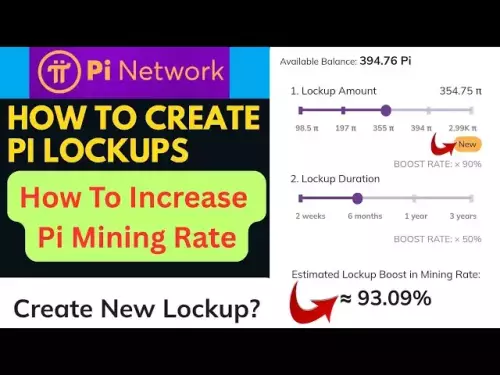PayPal's latest move integrates crypto into P2P payments, streamlining digital transactions and expanding crypto's reach. Discover the impact on users and the future of finance.

PayPal, Crypto, and P2P Payments: A New Era for Digital Transactions
PayPal is making waves by integrating crypto into its peer-to-peer (P2P) payment system, allowing users to send and receive Bitcoin, Ether, and its own PYUSD stablecoin directly through the PayPal and Venmo apps. This move simplifies crypto transactions and expands its reach, marking a significant step towards mainstream adoption.
PayPal Links: Streamlining Crypto Transfers
The introduction of PayPal Links is a game-changer. This feature generates personalized, one-time links that can be shared via text, email, or chat, making it easier than ever to send and receive payments, including crypto. The rollout began in the US and will expand to the UK, Italy, and other global markets, connecting billions of wallets worldwide.
Each link is private and expires after 10 days if unclaimed, ensuring funds are transferred instantly once accepted via PayPal’s app. The integration of Bitcoin, Ether, and PYUSD across PayPal, Venmo, and compatible external wallets bridges the gap between mainstream banking apps and crypto-native rails.
Why This Matters for Crypto Adoption
Peer-to-peer payments were central to Bitcoin's original vision. PayPal's update brings that vision closer to reality. With over 400 million active accounts, PayPal’s integration of crypto assets instantly expands the global reach of crypto payments. Stablecoins like PYUSD add another dimension, potentially cutting remittance costs by up to 95%.
Tax Implications and Regulatory Framework
A key aspect of PayPal’s crypto P2P transfers is the tax-exempt status for personal transactions. Transfers between friends and family won’t trigger 1099-K tax reporting, simplifying everyday crypto usage. This decision makes crypto more appealing for gifts, reimbursements, and shared expenses.
The Rise of Crypto Wallets
PayPal's move normalizes crypto for millions, but it also highlights the need for wallets that offer improved flexibility, security, and decentralization. Crypto-native solutions like Best Wallet are designed to take P2P finance to the next level, offering a smooth user experience with wallet-to-wallet interoperability between blockchains and dApps.
$BEST: Driving the Future of P2P Payments
Best Wallet's native $BEST token powers utilities like higher staking rewards, governance rights, fee discounts, access to presales, and loyalty perks, providing financial incentives beyond traditional fintech apps like PayPal. As P2P adoption accelerates, $BEST could be a significant winner, offering a high-upside retail play that complements Bitcoin and Ethereum's utility.
Final Thoughts
PayPal's foray into crypto P2P payments is more than just a feature update; it's a sign of the times. Crypto is inching its way into everyday life, and who knows? Maybe one day, splitting the dinner bill with Bitcoin will be as common as swiping your card. The future of finance is here, and it's looking pretty crypto-cool!














































































